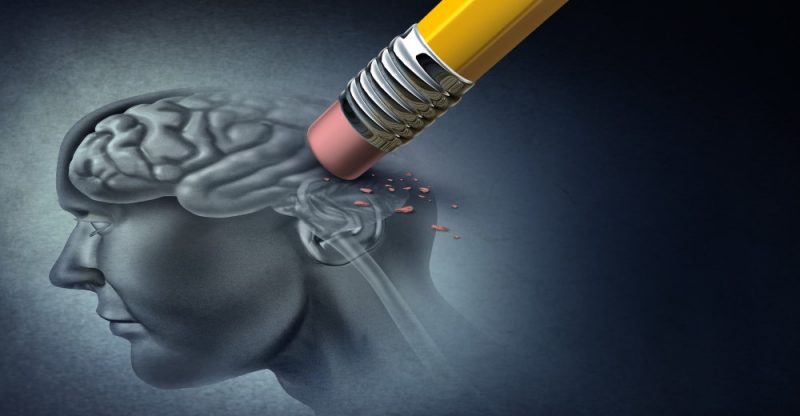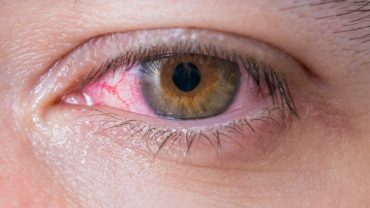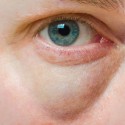Short-Term Memory Loss: Causes and Remedies
We rely heavily on our memory to help us perform basic functions every day.
What happens, however, when your memory stops working?
While you may not think it will happen to you until you are older, short-term memory loss is more common than you might think.
It happens for many different reasons.
If you are starting to forget simple things, are having trouble recalling what you did just a few days ago, or notice someone you love struggling to remember, then this article is for you.
We will explore the many causes of short-term memory loss, as well as what medical research is telling us about how to treat this condition.
Getting your memory back is a top priority for everyone.
Understanding How Your Memory Works
Your brain has two types of memory, which is where you store information for later use.
We have a short-term memory, which is excellent for storing small amounts of data for short amounts of time.
We also have long-term memory, where things that are important or might be needed in the future get filed.
Things that are in short-term memory do not last for long.
They usually remain just long enough for you to either use it (like a phone number) or to determine where you should store it in long-term memory.
Many people refer to short-term memory as working memory, because you are actively working to decide what to do with the information (1).
You also have other types of memory, including semantic memory, where you store your knowledge about words, concepts and numbers, and autobiographical memory, where you store memories of specific episodes from your life that tell the story of you.
Short-Term Memory Loss
When we talk about short-term memory loss, we are referring to problems with short-term or working memory that can cause you to lose track of what you are currently doing or has recently happened.
Some examples of short-term memory lapses, include getting lost while driving to a familiar place, forgetting where you put your purse/wallet/keys/phone, starting to talk but forgetting what the conversation is about, or forgetting why you came into a room (2).
While things like this happen to everyone from time to time, it is when they occur more frequently and with more significant consequences that you have cause for concern.
When you notice bouts of forgetfulness on a more regular basis, it could be signaling a more severe problem that needs to be addressed.
Short-term memory loss does not affect your ability to know who you are, what happened years ago, or how to do things that you have known for years, like cooking or driving.
Those memories are stored in different parts of your brain and are not affected by the short-term memory system.
Most health issues that affect memory, rarely impact these types of memories.
It is the more subtle and smaller health problems that can manifest into memory difficulties, like the ones we described early.
When you have short-term memory problems, it signals a possible underlying condition that could be causing these issues.
When you are struggling to hold on to memories in this way, you could have difficulties driving, taking care of your basic needs, giving yourself medication or interacting with new people or unfamiliar places.
We will explore the most common causes of short-term memory loss below.
However, first, let’s look at when you should see a doctor and how your problems may be diagnosed.
Diagnosing the Problem
If you have concerns about your memory or the memory of someone you love, talk to your doctor about them.
As you get older, this is even more important. While some minor forgetfulness is normal, memory loss could be a sign of a much more significant problem.
Therefore, you do not want to wait too long, before addressing it with your doctor.
Your doctor will likely ask you some questions to determine the severity and frequency of your symptoms.
Issues that you should be prepared to discuss include your symptoms, how you have already dealt with the problem, your lifestyle and diet, recent illnesses or injuries, your sleep habits, and your emotional state.
The next step will be a physical exam that can help to reveal any medical problems.
Depending on this exam and the answers to the questions, you may need to have blood work done.
She or he may also request imaging of your brain, such as a CT scan or MRI to identify potential causes of your memory loss.
There may also be other types of tests, including cognitive assessments, to check for other types of impairment.
Depending on the extent of your memory problems, you could also be struggling with attention, basic cognitive functions, long-term memory lapses, and reasoning.
If your doctor is concerned about dementia or other types of cognitive degeneration, he or she may refer you for more specialized testing from a neuropsychologist.
The tests and labs that you perform are all designs to pinpoint the cause of your short-term memory loss.
Many things can cause this problem, and not all of them are serious or permanent.
We will next explore the most common causes of short-term memory issues.
Causes of Short-Term Memory Loss
Aging
One of the most common causes of the loss of short-term memory is aging.
As you get older, your brain naturally loses its ability and efficiency for storing information and processing.
Older adults typically have less capacity in their short-term memory than younger adults, so some of what you are experiencing could be completely natural and to be expected (3).
Some parts of the brain suffer more with the effects of aging.
Visual working memory, for example, steeply declines after the age of 60 (4).
The mechanism that causes these types of memory losses is not fully understood.
However, it is likely due to a combination of factors, including drops in serotonin levels over time (5).
Diseases
Many medical conditions and diseases can create conditions that cause memory issues.
A head injury that results in chronic traumatic encephalopathy, or CTE, commonly causes a loss of short-term memory (6).
Veterans and athletes most often incur these types of injuries.
Hypertension is another contributor to memory problems.
When blood pressure is elevated, it interferes with circulation to the brain, which can inhibit short-term memory function.
This is true for adults (7) and children (8) with high blood pressure.
Having a stroke can also affect parts of your brain related to memory.
Auditory memory is often impaired by a stroke, which can lead to problems with hearing and speech (9).
Other diseases that can cause short term memory problems include Lyme disease (10) and syphilis (11).
Neurological Problems
Diseases that affect the brain are more likely to cause memory problems than other medical conditions.
Diseases like dementia, including Alzheimer’s disease, are known for their ability to cause memory loss as well as other cognitive impairments (12, 13).
Another degenerative disorder, multiple sclerosis, also is known to impair verbal short-term memory, as well as episodic memory (14).
When you do not get enough sleep, your brain starts to suffer quickly.
Those with REM sleep behavior disorders often experience short-term memory losses (15).
Chronic memory disorders, like Korsakoff syndrome, also influence many parts of the short-term memory system (16).
Parkinson’s (17) and fibromyalgia (18) can also cause memory problems, but this does not affect all patients with these disorders.
Psychological Disorders
Mental health does not just affect emotions.
It also affects your physical health, as well as your neurological functioning.
Depression, for example, can not only cause problems with attention but also with short-term memory (19).
Bipolar disorder, a type of depression, also causes memory issues (20).
Schizophrenia is another disease that can lead to deficits in this capacity (21).
Anxiety, including general anxiety disorders and panic disorders, also influence memory (22).
Those coping with trauma, such as veterans with PTSD, also experience this deficit (23).
Stress
Stress has a profound influence on both the body and the brain.
Short-term memory can often suffer when you are under chronic or extremely high levels of stress.
High levels of cortisol, a stress hormone, can interfere with working memory (24), and the effects can be felt, regardless of the source of the stress (25).
Medications
The final category in the most common sources of short-term memory loss is medications.
Many medications influence memory and can lead to problems with attention, working memory rehearsal and other parts of the memory process.
These medications and drugs include:
- Statins, which lower cholesterol (26);
- Scopolamine hydrobromide, which is used to treat nausea and vomiting, as well as motion sickness (27);
- Benzodiazepines, which are used as tranquilizers (28);
- Recreational drugs, like cocaine and cannabis (29, 30);
- Alcohol (31).
Ways to Improve Short-Term Memory
If you are experiencing short-term memory loss, your treatment options will depend significantly on the causes of your issues.
While some conditions can be treated with changes in lifestyle and nutrition, others benefit more from cognitive exercises or medications.
Talk to your doctor about the most effective treatment or therapies for your memory problems.
Nutritional Supplements to Enhance Memory
Nootropics are supplements that positively impact brain function in those who are otherwise healthy.
These types of nutritional supplements are known for their ability to boost alertness, cognition, memory and other brain functions associated with age and general neurological decline.
Of the most popular and common nootropics, piracetam has been studied for its effects on short-term memory.
It has been shown to work for children (32), as well as cardiac bypass patients (33).
One of the most popular ways to boost memory (and other mental functions) is to take nootropic supplements.
Many different memory-enhancing nootropics are available, and many users of these products report significant benefits.
Gingko Biloba is another popular memory supplement that has shown some positive results in animal trials (34).
Curcumin is gaining attention for its ability to enhance memory (35).
Lifestyle Changes to Boost Memory
There are many daily habits and activities that can improve the function of your short-term memory.
For example, changes that allow you to get sufficient and restful sleep can improve your memory’s capacity.
Eating healthy foods and getting regular exercise ensures that your brain has the oxygen and nutrients it needs to perform memory tasks.
For those struggling at home with memory problems, be sure that you eliminate the clutter which can distract you and worsen memory issues and use things like to-do lists and schedules to remind you of things.
Doing puzzles (36) or engaging in brain-training activities (37) can help older adults exercise their short-term memory to strengthen it.
Playing video games has also been shown to improve short-term memory (38, 39).
Meditation is helpful for promoting working memory function (40), while laughter also stimulates brain function to promote better memory (41).
Using Memory Techniques
There are several techniques you can use to help you remember things and move things from short-term to long-term memory.
Here are a few that are commonly used:
- Chunking- combining smaller bits of information into a more meaningful group (42).
- Mental imagery- creating an image to represent a concept or word (43).
- Acronyms- remembering a phrase or list of words, by creating one word to stand for each first letter in the list.
Medications to Boost Memory Function
Depending on what is causing your memory loss, some medications could help.
Caffeine is a stimulant that enhances your short-term memory.
Therefore, drinking some coffee or tea could improve your short-term memory (44).
The same is true for nicotine, although that is not a reason to start using this highly-addictive substance (45).
Prescription drugs that are sometimes used to treat short-term memory loss include:
Medical Procedures to Consider
In some cases, you may need a medical procedure or surgery to treat the condition causing your short-term memory loss.
One treatment that is growing in popularity and recognition is neurofeedback training or NFB. By being connected to probes that measure and illustrate brain activity, patients are then taught to control their cognitive function to improve how their brain works, including how it stores memories.
This treatment has been shown to improve short-term memory and working memory in healthy subjects (49, 50), as well as in older adults.
This therapy could even reverse age-related memory impairments (51).
Those who have had a stroke (52) or another type of brain injury may also benefit from NFB treatment.
Conclusion
Due to the wide variety of reasons you may be experiencing short-term memory problems, it is always advisable that you talk with your doctor about your symptoms, as well as treatment options.
While short-term memory can be affected by minor issues, like sleep and nutrition, it can also be caused by more severe illnesses.
FDA Compliance
The information on this website has not been evaluated by the Food & Drug Administration or any other medical body. We do not aim to diagnose, treat, cure or prevent any illness or disease. Information is shared for educational purposes only. You must consult your doctor before acting on any content on this website, especially if you are pregnant, nursing, taking medication, or have a medical condition.
HOW WOULD YOU RATE THIS ARTICLE?





